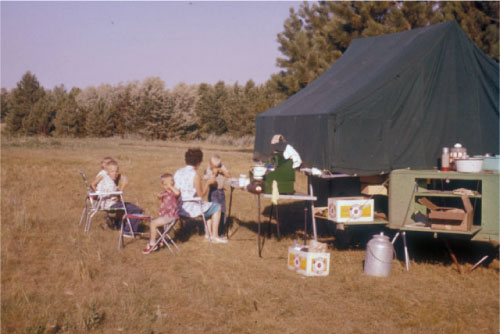When I first saw this Yahoo news article, I figured there had to be more to the story:
A Spencer, N.Y., student was sent home from school last week for wearing a T-shirt that denounces homophobia.
Heathyre Farnham, 16, said she was not trying to be inflammatory by wearing the shirt that says, “Gay? Fine By Me.”
Contrary to what the lead sentence says, there’s nothing in that message about homophobia. (What would have been really interesting would have been a T-shirt that said, “Gay? Fine By Me. Homophobic? Fine By Me.”)
It turns out there are news articles with additional information, though it seems most of the information comes from one side of the conflict. The school doesn’t want to talk to the news media about it, which I suppose is reasonable. These types of stories can get spun one way or another so easily, as any parent or teacher who has had to referee a squabble can tell you.
But it’s interesting that all of a sudden, out of the blue, religion is dragged into it. Here it is, a non sequitur from another version:
Beeman [the kid’s mother] noted that religious issues had proven disruptive the previous school year, with students saying that their lessons at school contradicted their religious training.
Said Beeman, “There’re six churches in the area,” and added that the locale “tends to revolve around this religious hub.”
Added Beeman, “It tends to infiltrate into the school. Last year classes would be interrupted by period-long debates, that ’they shouldn’t be teaching this.’”
Said Beeman, “We’re very tolerant of people’s beliefs, but we don’t want them shoved down our throats and that tends to be what happens.”
Note the word “infiltrate.” It took me a while to realize why that bothered me. But now I remember. Back in the 50s, it was a word often used by people complaining about communists “infiltrating” schools and Hollywood. I know the folks using that word back then meant it was a bad thing. Sounds like this Beeman thinks it’s a bad thing, too.
Others might thing think it healthy that people with diverse beliefs can have their say and debate issues.
Here’s what one academic had to say about the subject of debates in the classroom. It’s something that’s posted in the library in the department where I work. You can find it in various places on the web, too.
It is important that students bring a certain ragamuffin, barefoot irreverence to their studies; they are not here to worship what is known, but to question it. — Jacob Bronowski
Sounds like that’s what’s happening at that school, in more ways than one. It’s too bad the news reporters didn’t do a little more questioning of their own, though, such as asking Beeman how she defines “shoved down our throats.”

